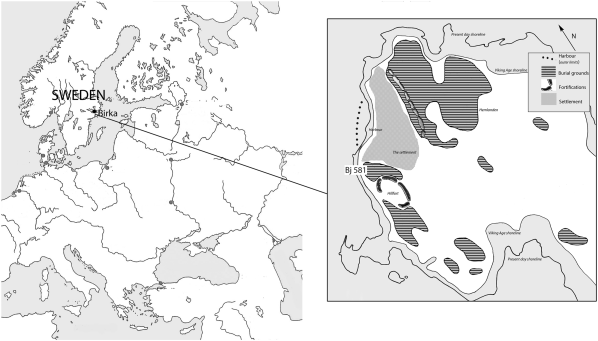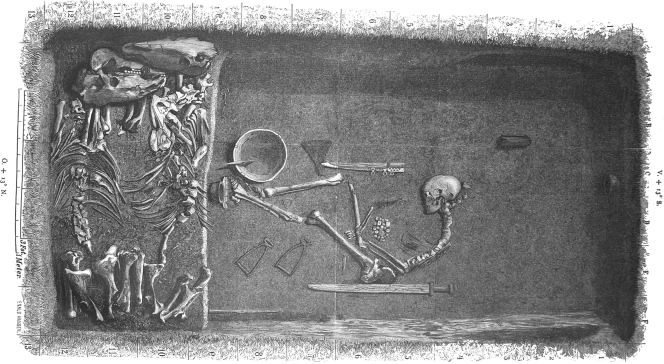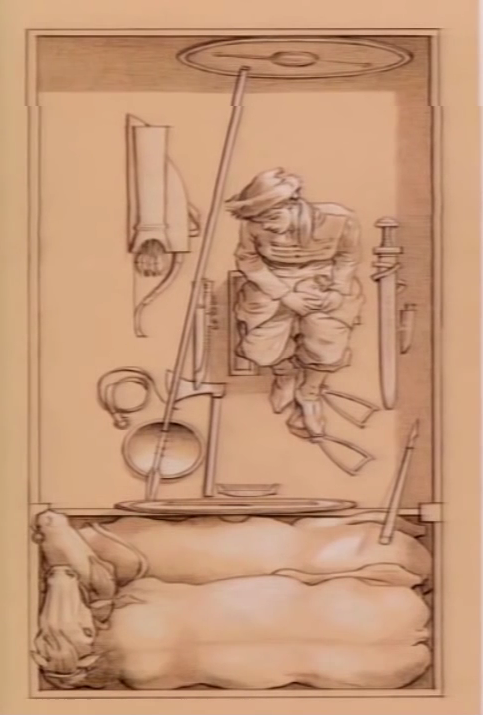A newly published article in the American Journal of Physical Anthropology has shed some light on the controversial issue of female Viking warriors. Although there are numerous contemporary descriptions of female warriors in the early medieval period, actual archaeological evidence for their existence has not been discovered. That is, until now. A reappraisal of one of the 'warrior' graves discovered at the important trading post of Birka has sexed the buried remains as female through genomic research.

Location of Birka and grave Bj581 (source: Hedenstierna-Jonson C, Kjellström A, Zachrisson T, et al. A female Viking warrior confirmed by genomics. Am J Phys Anthropol. 2017;00:1–8.)
The grave, Bj 581 (to give it its archaeological record number), was first excavated in the late 19th century, when a lot of archaeological work was carried out at the site. The grave goods include a sword, an axe, a spear, armour-piercing arrows, a battle knife, two shields, and two horses, one mare and one stallion; thus, the complete equipment of a professional warrior. Furthermore, a full set of gaming pieces indicates knowledge of tactics and strategy, stressing the buried individual's role as a high-ranking officer. Although previous osteological work indicated that the human remains in the grave were female, this was a very controversial conclusion. Females from the Viking Age have been discovered with swords in their graves, but this was the first time a high ranking warrior had been sexed as female, so the conclusion was treated with caution.

Original excavation drawing of Bj 581 (source: Hedenstierna-Jonson C, Kjellström A, Zachrisson T, et al. A female Viking warrior confirmed by genomics. Am J Phys Anthropol. 2017;00:1–8.)
However, in the latest study genome wide sequence data was generated to confirm the biological sex of the remains and an isotope analysis conducted to try to ascertain the mobility of the individual. The genomic results concluded a lack of Y chromosome and therefore indicated a female, whilst genetically she was close to modern-day north Europeans and Sweden in particular. However, nothing more could be said of her origin.

Reconstruction drawing of Bj 581 (source: Neil Price)
It may be argued that the human remains in the grave were originally grouped with another male body, subsequently lost, but the spatial grouping of the grave goods indicates that the female was buried with her possessions. Therefore, the conclusion drawn from the work is that this was a female warrior who not only had a knowledge of strategy and tactics (the gaming pieces) but also had prestigious weapons and equipment. Further to this, the study warns against making sweeping interpretations about archaeological contexts, ie, weapons in a grave indicate a male body.

Lagertha, female Viking warrior!
The full report can be read by clicking HERE.
Thanks for reading!